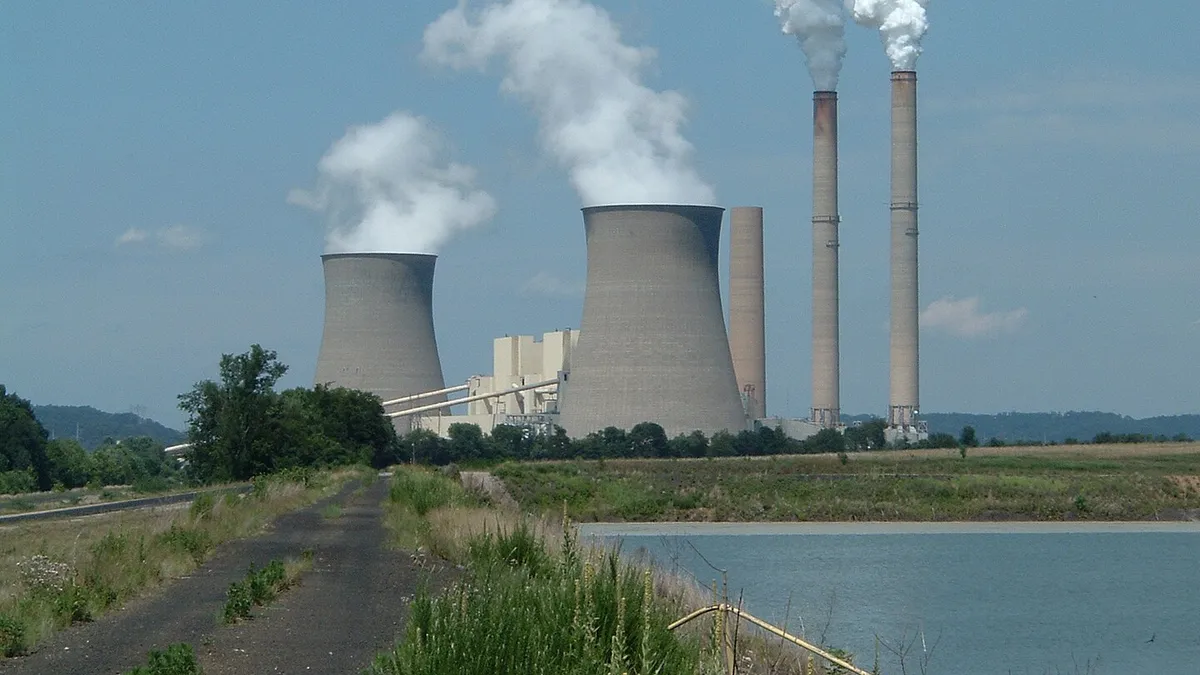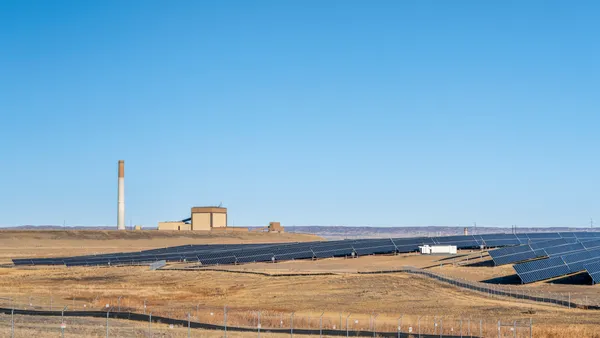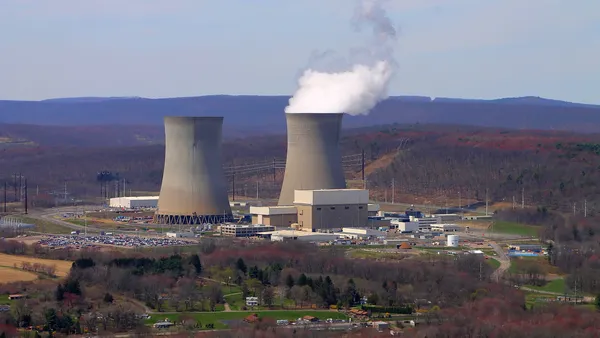Dive Brief:
-
Illinois lawmakers have introduced a massive energy bill backed by Exelon that would implement a sweeping restructuring of utility bills in the state to pay for a variety of incentives and programs, including subsidies to keep two nuclear power plants scheduled for closure operating, media sources report.
-
The bill also includes capacity charges for coal plants in the south of the state, as well as provisions for utility energy efficiency programs, utility microgrids and community solar projects. It would also institute mandatory residential demand charges while replacing net metering with a one-time rebate.
- The bill was introduced into the General Assembly’s shortened “veto session,” which runs for three days this week and three days the week after Thanksgiving, and has attracted vocal criticism from a variety of constituencies.
Dive Insight:
The day it was introduced, opponents of the Future Energy Jobs Bill spoke out in opposition to the proposed legislation.
“This is going to be the largest rate hike in U.S. history,” Dave Lundy, head of the BEST Coalition, a business group opposed to the bill, said at a press conference shortly after the bill was introduced.
Lundy was objecting to the subsidies the bill would provide to not only Exelon nuclear plants, but to southern Illinois coal plants as well. He said that Illinois generates 41% more electricity than the state needs, so payments to the coal and nuclear plants would be subsidizing rates for customers in other states.
Abe Scarr, director of Illinois Public Interest Research Group, called the mandatory demand charges in the bill “an end run around the Illinois Commerce Commission.”
Sheila Garland, with National Nurses United, said the charges would who would harm low-income and minority residents.
Solar advocates spoke out as well, decrying the demand charge and net metering reform they said would kill rooftop solar in the state.
“With the radical demand charges and elimination of net metering, [lawmakers] are also eliminating the options for residents to do anything about the rate hike," Amy Heart, director of public policy at Sunrun, told Midwest Energy News.
In a press briefing the day after the bill was introduced, Thomas O’Neill, senior vice president for regulatory and energy policy and general counsel of Exelon utility Commonwealth Edison, said that the utility had listened to critics and had changed some of the parameters of its proposed demand charge that would have “produced anomalous results.” And, he added, “We continue to listen to stakeholders.”
As David Kolata, executive director of the Citizens Utility Board, a utility watchdog, noted, the bill is still "a work in progress" and is likely to change before the final vote.













